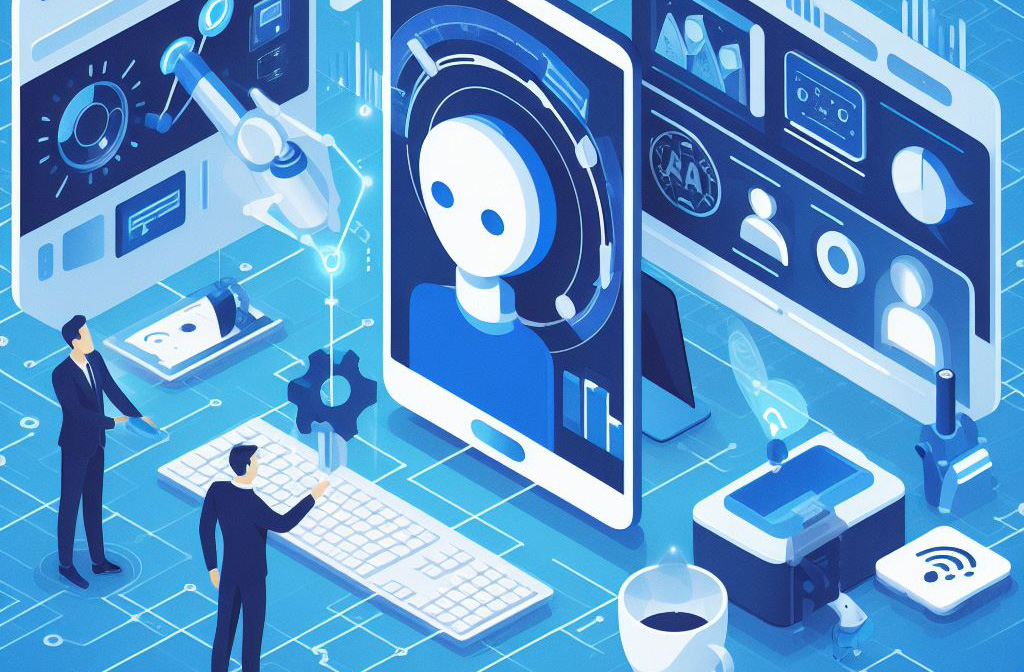We hear the term “customer-centric” thrown about a lot, but what does it really mean? Customer centricity is based on prioritizing the needs of the customer above all else. It may seem apparent, but in order to be truly customer-centric, businesses must establish systems and practices that allow them to prioritize the needs of their clientele.
A customer-centric corporate strategy and culture prioritizes the satisfaction of customers before, during, and after the purchase process in order to generate long-term success. There are many advantages for companies when customer-centricity is properly implemented, including:
- Client retention rates rise
- Value of existing customers increased
- More chances to market additional products or services
- Elevated levels of contentment and loyalty among customers
- Staff members benefit from increased efficiency and output as a result
A customer-centric company culture is one in which employees actively prioritize the needs and requirements of their clients. Customer teams can only perform at their best if they have real-time access to integrated data and a thorough grasp of when and how to apply available technologies.
The customer service department, which encompasses the help desk, phone lines, email inboxes, sales system, logistics, and after-sale support, is the lifeblood of any business. AI-enabled enterprise resource planning (ERP) solutions and AI-enabled customer relationship management (CRM) systems facilitate data transparency by making real-time data readily available across an organization, allowing for a complete customer-centric shift in focus.
The Importance of Creating a Customer-Focused Company Culture
The long-term success of every business depends on its ability to foster a customer-centric culture. A Deloitte study found that businesses that focus on their customers’ needs had 60% higher profits. More important than satisfying a customer’s material needs is developing an atmosphere that instills confidence and trust. Here are some reasons why businesses should prioritize creating a customer-centric culture:
Connections through CLTV
Developing a culture focused on satisfying customers is key to increasing their lifetime value to your business. The customer lifetime value (or CLTV) of a client is a measure of how much money a company may expect to make from that customer over the course of their relationship with the company.
When a company cares about its customers and makes an effort to learn about them, it can better meet their requirements and increase the possibility that they will continue doing business with you. This preemptive strategy paves the way for the development of long-lasting, fruitful connections with customers.
Loyalty through Brand Ambassadors
Having ambassadors for your business is simple when the company culture is geared toward the customer needs. If your company’s culture is based on a customer-centric approach, your brand ambassadors will rise to the forefront as your customer base grows. Those who remain faithful to a business will spread positive word of mouth among their friends and acquaintances once they have an emotional investment in it.
A knowledge management system can, therefore, help you consistently communicate the brand qualities for which you want to be known to your clientele. All points of contact with customers — your website, social media, support channels, etc. — should convey the same values and message.
Fostering Customer Loyalty
Consistently providing a great customer experience is a key component of every business’s strategy to build customer loyalty. It creates a solid clientele that returns for more of your products and services. You need to focus on the entire customer journey rather than a few interactions. Only by prioritizing the connection over the exchange can this be possible.
Effective Advertising
Developing a customer-centric culture can help you save money on advertising. Incorporating consumer comments and feedback into the system leads to better efficiencies in operations. As a result, you get to save money on marketing by cutting down on client acquisition costs and establishing your company as an industry leader in terms of customer satisfaction. You can build a comprehensive ecosystem for communicating with customers across channels with the aid of a knowledge management platform.
Boosted Revenues
Developing a steady flow of revenue streams is possible as you give thought to your customers’ issues and work to provide useful solutions. You may expect sales to climb steadily so long as you maintain your focus on creating a highly customer-centric experience since more loyal consumers would continue to buy from your business on a long-term basis as a result of a pleasant customer experience.
How to Create a Customer-Centric Culture
There are a few tried and tested ways that you can use to create a highly customer-centric culture at your workplace. All you need to do is:
- Prioritize Empathy: Infusing empathy into your organizational strategy and communication is paramount. This entails the ability to identify customer needs and respond with tailored solutions, fostering a culture where understanding and addressing customer concerns take center stage.
- Implement Knowledge Management Practices: Building a customer-centric culture requires the efficient use of knowledge management to instill knowledge-sharing practices. Establishing seamless communication channels through knowledge management strategies, including functions like knowledge filtering and content creation, helps eliminate internal confusion and enhances customer-centric experiences.
- Share Customer Insights across Departments: Customer insights should extend beyond sales and marketing departments. By promoting cross-departmental information sharing, employees gain a comprehensive understanding of how their efforts contribute to customer satisfaction. Utilizing a knowledge management platform for proactive sharing helps structure insights for easier comprehension.
- Facilitate Direct Customer Interaction: It’s crucial to expand direct customer interaction opportunities beyond customer support teams. Encouraging various departments and multidisciplinary teams to engage directly with customers allows for a deeper understanding of their expectations and requirements. This approach fosters a company-wide appreciation for the customer perspective.
- Tie Compensation to Customer Satisfaction: Foster a customer-driven culture by linking elements of employees’ compensation to customer satisfaction scores. This incentivizes a collective effort towards ensuring customer contentment. Aligning compensation with customer satisfaction reinforces the importance of customer-centricity throughout the organization.
The Role of AI Consulting in Creating a Customer Centric Culture
The integration of AI consultancy with business operations has emerged as a critical strategy for establishing a customer-centric culture. Improving interactions and connections with customers is made much easier with the help of Artificial Intelligence technology, especially in the field of customer relationship management (CRM). Let’s go into the specific benefits of CRM powered by AI:
Suggested Read: Top AI Consulting Companies in USA
AI-Powered CRM for Personalized Experiences through Segmentation
AI plays a crucial role in creating a customer-centric culture by enhancing various aspects of customer interactions and relationships. One key contribution of AI-powered CRM is the ability to offer personalized experiences through customer segmentation. These software applications help organizations categorize customers based on demographics, purchase history, and engagement level, allowing businesses to tailor experiences to each customer group for more relevant and personalized interactions.
Predictive Analytics for Anticipating Needs
Predictive analytics, powered by AI, is another significant aspect of AI consulting. By analyzing customer data, AI helps anticipate customer needs and proactively offer information or assistance. For instance, understanding a customer’s purchase history enables businesses to predict when they might need a new product or service, allowing proactive engagement.
Automation of Repetitive Tasks
Automation of repetitive tasks is a notable benefit of AI-powered CRM. By automating routine customer engagement tasks such as sending emails, making calls, and providing support, AI allows human representatives to focus on building relationships and handling more complex issues. This contributes to a better overall customer experience.
Improved Customer Retention and Reduced Churn
AI contributes significantly to improved customer retention and reduced churn by gathering valuable customer insights to understand client preferences and needs. The identification of factors contributing to churn helps organizations address issues early on, reducing the likelihood of customers leaving.
A Holistic View of Customer Interactions
The integration of AI with various communication channels, such as chatbots, live chat, social media, and email, provides a holistic view of the customer’s entire journey. This comprehensive approach ensures that customers receive personalized and seamless experiences across different touchpoints.
Enhanced Customer Engagement Analysis
AI-driven machine learning algorithms analyze customer data to identify the latest trends and patterns, hence enhancing customer service, marketing campaigns, and product development efforts. Sentiment analysis, using Natural Language Processing (NLP), helps understand customer sentiments and improve engagement strategies.
Creating a Customer Feedback Loop
AI facilitates the implementation of a customer feedback loop. By collecting data from surveys, NPS surveys, customer service interactions, and user testing, organizations can establish a continuous feedback loop, making data-driven improvements to enhance the overall customer experience.
Leadership Buy-in and Strategic Implementation
In terms of leadership buy-in and strategic implementation, AI assists in creating practical customer-centric strategies. Ensuring leadership buy-in and understanding the impact on the entire organization is crucial. Starting with small projects and learning from them allows for more practical and feasible implementation across various business areas.
Measuring Relevant Metrics
Measuring relevant metrics is also a critical aspect where AI can help. By ensuring organizations measure and track the right metrics, AI prevents misguided assessments of progress and success in achieving customer-centric goals.
Trends in AI-powered CRM
Finally, trends in AI-powered CRM include the use of predictive analytics for anticipating customer needs, automation of manual processes, and integration with other technologies like chatbots and social media listening tools. These trends further emphasize the evolving landscape of customer-centric strategies with AI at the forefront.
Conclusion
AI consulting empowers businesses to become customer-centric leaders by harnessing the power of data, automation, and advanced analytics. It enables organizations to anticipate customer needs, personalize interactions, and continuously improve the customer experience. By leveraging AI, businesses can build strong customer relationships, foster brand loyalty, and drive sustainable growth in today’s customer-centric marketplace.
RTS Labs is an industry leader in providing future-proof, customer-focused business software solutions across the board. Our number one priority is to satisfy our customers’ expanding needs. As a company, we separate ourselves from the competition, thanks to our strong product expertise, our familiarity with complex company processes, and our ability to apply that knowledge across projects. Our goal is to complete every project on schedule and to the client’s complete satisfaction.
Get in touch with us today to access our wide range of enterprise-grade AI consulting products and services.






